Discover the Women of the Hall
These are the Inductees of the National Women’s Hall of Fame. Select any of the women to discover their stories and learn how they have influenced other women and this country.
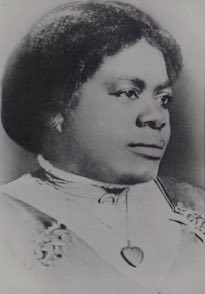
Mary McLeod Bethune
African American teacher who, with only $1.50, began a school to help educate young African American women. After developing it into a college, she became a powerful leader, and through her leadership of the National Council of Negro Women, worked to end discrimination and increase opportunities for African Americans.

Ruth Fulton Benedict
A student of Franz Boas and mentor to Margaret Mead, Ruth Fulton Benedict was a highly influential anthropologist whose theories tremendously influenced the field of cultural anthropology. Her 1934 Patterns of Culture became an American classic and is still a highly regarded publication today.
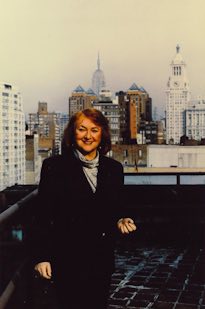
Eleanor K. Baum
As the former Dean of Engineering at Cooper Union and the Executive Director of the Cooper Union Research Foundation, Dr. Eleanor Baum is the first female engineer to be named dean of a college of engineering in the United States. In 1995, she became the first female president of the American Society for Engineering Education. An electrical engineer who has worked in the aerospace industry, Dr. Baum is a respected leader in recruitment and retention of women in the engineering profession.
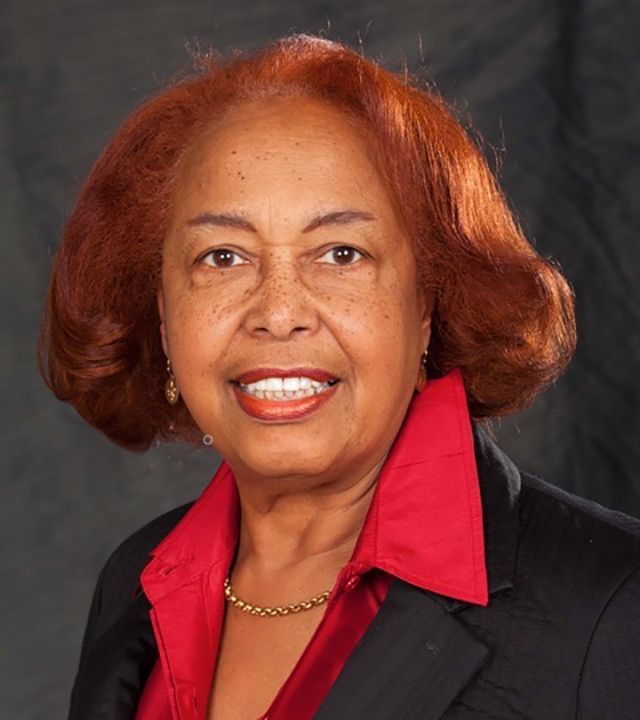
Patricia Bath
Patricia Era Bath was an American ophthalmologist, inventor, humanitarian, and academic. She was an early pioneer of laser cataract surgery and was the first Black woman physician to receive a medical patent, which she received in 1986, for the Laserphaco Probe and technique, which performed all steps of cataract removal.
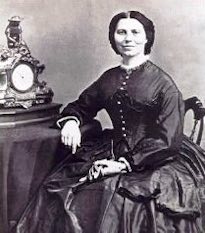
Clara Barton
Founder of the American Red Cross, Barton ministered to injured soldiers during the Civil War and became known as the “Angel of the Battlefield.” Devoted to the organization, she later took to the field, providing relief in the Spanish American War at the age of 77.

Ann Bancroft
First woman to travel across the ice to the North and South Poles. She was the first woman to travel across Greenland on skis, and in 1993, was leader of the American Women’s Expedition, a group of four who skied more than 600 miles to the South Pole.

Mary McLeod Bethune
African American teacher who, with only $1.50, began a school to help educate young African American women. After developing it into a college, she became a powerful leader, and through her leadership of the National Council of Negro Women, worked to end discrimination and increase opportunities for African Americans.

Ruth Fulton Benedict
A student of Franz Boas and mentor to Margaret Mead, Ruth Fulton Benedict was a highly influential anthropologist whose theories tremendously influenced the field of cultural anthropology. Her 1934 Patterns of Culture became an American classic and is still a highly regarded publication today.

Eleanor K. Baum
As the former Dean of Engineering at Cooper Union and the Executive Director of the Cooper Union Research Foundation, Dr. Eleanor Baum is the first female engineer to be named dean of a college of engineering in the United States. In 1995, she became the first female president of the American Society for Engineering Education. An electrical engineer who has worked in the aerospace industry, Dr. Baum is a respected leader in recruitment and retention of women in the engineering profession.

Patricia Bath
Patricia Era Bath was an American ophthalmologist, inventor, humanitarian, and academic. She was an early pioneer of laser cataract surgery and was the first Black woman physician to receive a medical patent, which she received in 1986, for the Laserphaco Probe and technique, which performed all steps of cataract removal.

Clara Barton
Founder of the American Red Cross, Barton ministered to injured soldiers during the Civil War and became known as the “Angel of the Battlefield.” Devoted to the organization, she later took to the field, providing relief in the Spanish American War at the age of 77.

Ann Bancroft
First woman to travel across the ice to the North and South Poles. She was the first woman to travel across Greenland on skis, and in 1993, was leader of the American Women’s Expedition, a group of four who skied more than 600 miles to the South Pole.
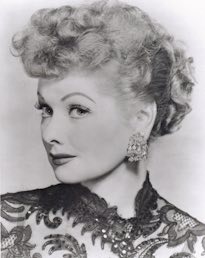
Lucille Ball
Undoubtedly one of the best known and best loved television comediennes of all time. The “I Love Lucy Show”, which began in 1951, is still shown in reruns in more than 70 countries around the world. She was a television pioneer who excelled both in the acting and the production aspects of television.

Ella Baker
Premier behind-the-scenes organizer and co-founder of the Southern Christian Leadership Conference (SCLC), headed by Martin Luther King, Jr. Baker also helped establish the civil rights movement’s foremost student organization, the Student Non-Violent Coordinating Committee.
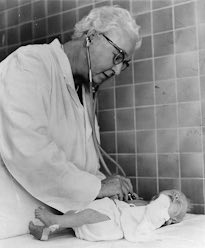
Virginia Apgar
Physician best known for development of the Apgar Score in 1952. This system of simple tests is used to determine whether a newborn child requires special medical attention, and it has saved thousands of lives.

Susan B. Anthony
The women’s movement’s most powerful organizer whose lifetime of dedication, and work with Elizabeth Cady Stanton, paved the way for women’s right to vote. Her words “Men their rights and nothing more; women their rights and nothing less,” expressed the ongoing struggle for equality.

Maya Angelou
Poet, author and early Civil Rights advocate. Angelou’s early career was in the theater, and she co-wrote Cabaret for Freedom to raise funds for the Southern Christian Leadership Conference, for which she later became northern coordinator. She raised social consciousness through writings such as I Know Why the Caged Bird Sings and The Heart of a Woman. She was a nominee for a Tony, an Emmy, and a Pulitzer Prize.
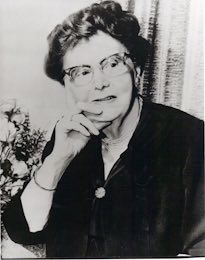
Ethel Percy Andrus
Founded the American Association of Retired Persons (AARP) to help older Americans cope effectively in their later years. Her organization, now 36 million members strong and a political lobbying force, helps with health insurance, career assistance and discounts for senior citizens.

Lucille Ball
Undoubtedly one of the best known and best loved television comediennes of all time. The “I Love Lucy Show”, which began in 1951, is still shown in reruns in more than 70 countries around the world. She was a television pioneer who excelled both in the acting and the production aspects of television.

Ella Baker
Premier behind-the-scenes organizer and co-founder of the Southern Christian Leadership Conference (SCLC), headed by Martin Luther King, Jr. Baker also helped establish the civil rights movement’s foremost student organization, the Student Non-Violent Coordinating Committee.

Virginia Apgar
Physician best known for development of the Apgar Score in 1952. This system of simple tests is used to determine whether a newborn child requires special medical attention, and it has saved thousands of lives.

Susan B. Anthony
The women’s movement’s most powerful organizer whose lifetime of dedication, and work with Elizabeth Cady Stanton, paved the way for women’s right to vote. Her words “Men their rights and nothing more; women their rights and nothing less,” expressed the ongoing struggle for equality.

Maya Angelou
Poet, author and early Civil Rights advocate. Angelou’s early career was in the theater, and she co-wrote Cabaret for Freedom to raise funds for the Southern Christian Leadership Conference, for which she later became northern coordinator. She raised social consciousness through writings such as I Know Why the Caged Bird Sings and The Heart of a Woman. She was a nominee for a Tony, an Emmy, and a Pulitzer Prize.

Ethel Percy Andrus
Founded the American Association of Retired Persons (AARP) to help older Americans cope effectively in their later years. Her organization, now 36 million members strong and a political lobbying force, helps with health insurance, career assistance and discounts for senior citizens.
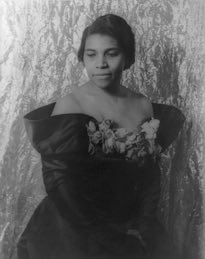
Marian Anderson
First African American singer to perform with the Metropolitan Opera. An international star, Anderson was a brilliant musician whose talents helped shatter the color barrier for other African American performers.
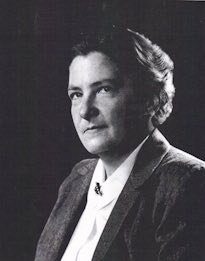
Dorothy H. Andersen
Pediatrician and pathologist who was the first to identify cystic fibrosis and developed a simple, definitive diagnostic test for the disease.
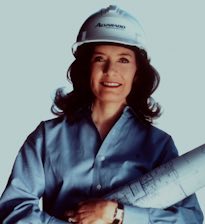
Linda G. Alvarado
Hispanic-American businesswoman who started her own construction firm in 1976 and has broken many barriers in a historically male-dominated world. As co-owner of The Colorado Rockies baseball team, Alvarado is also the first Hispanic-American, male or female, to own a major league baseball franchise.
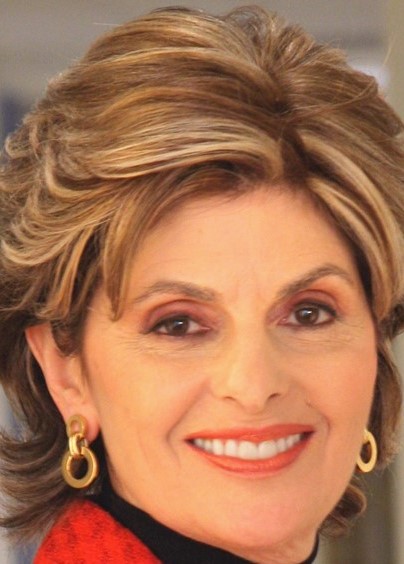
Gloria Allred
Gloria Allred is a founding partner of the law firm of Allred, Maroko & Goldberg (AM&G). Across her 42-year legal career, her firm has handled more women’s rights cases than any other private law firm in the nation and has won hundreds of millions of dollars for victims. Her work began with sex discrimination cases eliminating separation of toys by gender in stores and the exclusion of women from private clubs, and in recent decades has focused on sexual harassment and assault as well as reproductive justice. A key voice in the pursuit of marriage equality, Allred has won countless honors for her pioneering legal work on behalf of women’s rights and rights for minorities. Her work continues today.

Florence Ellinwood Allen
Judge Florence Ellinwood Allen was a legal pioneer, breaking barriers for women in law. Her numerous accomplishments include becoming the first American woman to hold the office of Assistant County Prosecutor, first woman judge of the highest court of a state by election (Ohio), and first female judge of a United States Circuit Court of Appeals by presidential appointment.
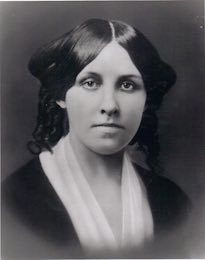
Louisa May Alcott
Author who produced the first literature for the mass market of juvenile girls in the 19th century. Her best-known work, Little Women, has appeared continuously in print since its first publication in 1868-69.

Marian Anderson
First African American singer to perform with the Metropolitan Opera. An international star, Anderson was a brilliant musician whose talents helped shatter the color barrier for other African American performers.

Dorothy H. Andersen
Pediatrician and pathologist who was the first to identify cystic fibrosis and developed a simple, definitive diagnostic test for the disease.

Linda G. Alvarado
Hispanic-American businesswoman who started her own construction firm in 1976 and has broken many barriers in a historically male-dominated world. As co-owner of The Colorado Rockies baseball team, Alvarado is also the first Hispanic-American, male or female, to own a major league baseball franchise.

Gloria Allred
Gloria Allred is a founding partner of the law firm of Allred, Maroko & Goldberg (AM&G). Across her 42-year legal career, her firm has handled more women’s rights cases than any other private law firm in the nation and has won hundreds of millions of dollars for victims. Her work began with sex discrimination cases eliminating separation of toys by gender in stores and the exclusion of women from private clubs, and in recent decades has focused on sexual harassment and assault as well as reproductive justice. A key voice in the pursuit of marriage equality, Allred has won countless honors for her pioneering legal work on behalf of women’s rights and rights for minorities. Her work continues today.

Florence Ellinwood Allen
Judge Florence Ellinwood Allen was a legal pioneer, breaking barriers for women in law. Her numerous accomplishments include becoming the first American woman to hold the office of Assistant County Prosecutor, first woman judge of the highest court of a state by election (Ohio), and first female judge of a United States Circuit Court of Appeals by presidential appointment.

Louisa May Alcott
Author who produced the first literature for the mass market of juvenile girls in the 19th century. Her best-known work, Little Women, has appeared continuously in print since its first publication in 1868-69.
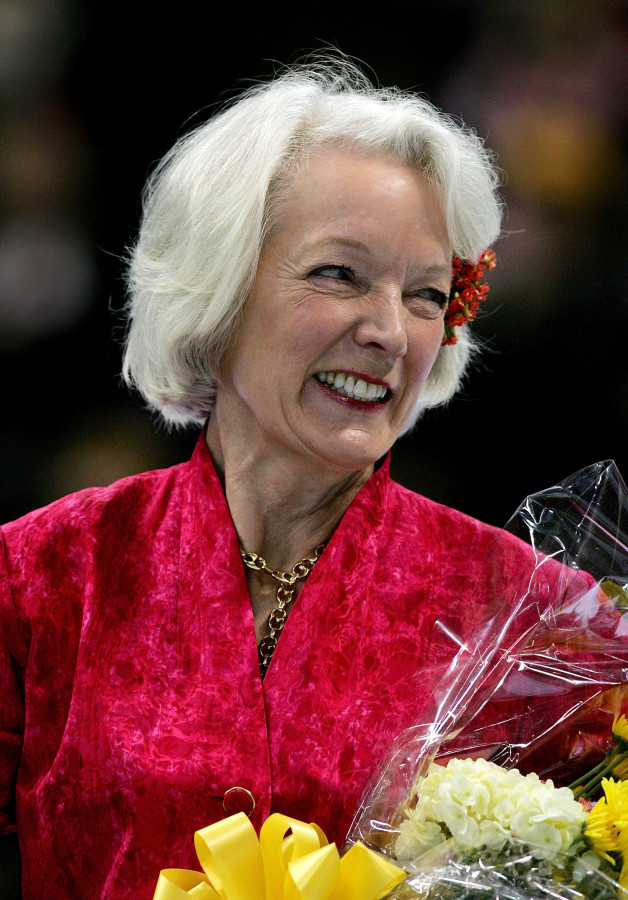
Tenley Albright
The first American woman to win an Olympic gold medal in figure skating. Named one of the “100 Greatest Female Athletes.” A successful surgeon and leader in blood plasma research, she works in international efforts to eradicate polio.
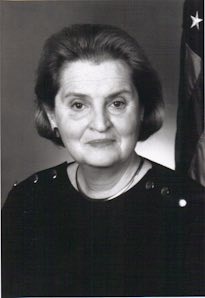
Madeleine Korbel Albright
First female Secretary of State and highest ranking woman in the U.S. government under President Clinton. As a professor at Georgetown University, she taught undergraduate and graduate courses in international affairs and Russian and Central and Eastern European politics. In President Clinton’s first term, she was the U.S. Permanent Representative to the United Nations and a member of the National Security Council.

Jane Addams
Social reformer and peace activist who created Hull House in the slums of Chicago, starting an American settlement house movement to provide help for the poor. A lifelong activist, Addams fought child labor, infant mortality and dangerous workplaces. Founder of the Women’s International League for Peace and Freedom, she won the Nobel Prize for Peace in 1931.

Abigail Adams
Influential letter writer who urged her husband, President John Adams to “Remember the Ladies” and permit women to legally own property. She identified this major obstacle to women’s equality, which was overcome years later.
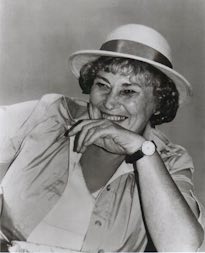
Bella Abzug
Civil rights and labor attorney elected to Congress from New York City in 1970. Abzug made her career as an advocate for women, the poor and those victimized by repression. A lifelong feminist activist, she played a major role in many national and international women’s conferences. Before her death, she chaired the Women’s Environment and Development Organization.
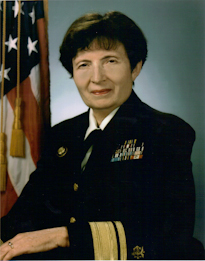
Faye Glenn Abdellah
First nurse to hold the rank of Rear Admiral and the title of Deputy Surgeon General for the United States. She developed the first tested coronary care unit. A national pioneer in nursing research, she has authored or co-authored more than 150 publications and helped change the focus of nursing from disease-centered to patient-centered.

Tenley Albright
The first American woman to win an Olympic gold medal in figure skating. Named one of the “100 Greatest Female Athletes.” A successful surgeon and leader in blood plasma research, she works in international efforts to eradicate polio.

Madeleine Korbel Albright
First female Secretary of State and highest ranking woman in the U.S. government under President Clinton. As a professor at Georgetown University, she taught undergraduate and graduate courses in international affairs and Russian and Central and Eastern European politics. In President Clinton’s first term, she was the U.S. Permanent Representative to the United Nations and a member of the National Security Council.

Jane Addams
Social reformer and peace activist who created Hull House in the slums of Chicago, starting an American settlement house movement to provide help for the poor. A lifelong activist, Addams fought child labor, infant mortality and dangerous workplaces. Founder of the Women’s International League for Peace and Freedom, she won the Nobel Prize for Peace in 1931.

Abigail Adams
Influential letter writer who urged her husband, President John Adams to “Remember the Ladies” and permit women to legally own property. She identified this major obstacle to women’s equality, which was overcome years later.

Bella Abzug
Civil rights and labor attorney elected to Congress from New York City in 1970. Abzug made her career as an advocate for women, the poor and those victimized by repression. A lifelong feminist activist, she played a major role in many national and international women’s conferences. Before her death, she chaired the Women’s Environment and Development Organization.

Faye Glenn Abdellah
First nurse to hold the rank of Rear Admiral and the title of Deputy Surgeon General for the United States. She developed the first tested coronary care unit. A national pioneer in nursing research, she has authored or co-authored more than 150 publications and helped change the focus of nursing from disease-centered to patient-centered.
